How to House Train a Shih Tzu: Stress-Free Tips That Work

How to House Train a Shih Tzu: Stress-Free Tips That Work. Training a Shih Tzu to do their business outside can feel overwhelming, but it doesn’t have to be. These small, stubborn dogs are known for their strong-willed nature, which can make house training seem daunting.
The good news? With consistency, patience, and the proper techniques, you can teach your Shih Tzu puppy—or even an adult dog—to stick to a routine without stress or frustration. In this post, you’ll learn practical tips to make the process smoother for you and your furry friend. Let’s keep things simple, straightforward, and stress-free.
Table of Contents
Understanding Your Shih Tzu’s Behavior
Understanding how your Shih Tzu behaves and communicates can be a game-changer in house training. These lovable dogs have distinct ways of showing when they need to go outside. Additionally, their temperament and personality play a massive role in how they respond to training. Let’s dive into what you need to know to better work with your four-legged friend.
Recognizing Potty Signs
Noticing when your Shih Tzu needs to go outside is crucial for smooth house training. Shih Tzus are small and can be subtle in their signals, so pay attention to their body language. Here are a few common signs:
- Sniffing the floor: Your dog may start sniffing in circles for a suitable bathroom spot.
- Pacing or circling: They might need to relieve themselves if they seem restless.
- Whining or barking: This verbal cue is their way of asking for attention or letting you know it’s time to go out.
- Heading to the same spot: If your Shih Tzu repeatedly goes to a specific area indoors, they might be using it as their “bathroom.”
Consistency is key. Once you spot the signs, immediately take them outside to reinforce where they should go. For more practical tips on recognizing these behaviors, check out this guide on potty training a Shih Tzu.

Photo by RDNE Stock project
Temperament Traits
Understanding your Shih Tzu’s temperament can make a difference in training. These dogs are known for being affectionate, intelligent, and social. But they also have traits that can either help or hinder your efforts.
- Eager to Please: Shih Tzus often wants to make their owners happy, which makes reward-based training effective.
- Stubborn: Patience is essential, as they sometimes test boundaries or resist commands.
- People-Oriented: They thrive on attention and may cooperate better when they feel included and loved.
Their temperament also means they respond well to positive reinforcement. Treats, praise, and gentle encouragement work wonders. For more insight into how their temperament impacts training, visit this temperament guide for Shih Tzus.
Common Training Challenges
Training any dog comes with hurdles, and Shih Tzus is no exception. Here are a few challenges you might encounter:
- Stubbornness: Shih Tzus can be an independent thinker. They may not follow commands immediately, testing your patience.
- Anxiety: These dogs are sensitive and may struggle with separation anxiety, which can cause accidents indoors.
- Distractions: Their playful nature makes them easily distracted during training sessions.
Understanding your dog’s needs is the best way to overcome these challenges. For instance, sticking to a routine can help a stubborn Shih Tzu adapt to expectations. If anxiety complicates training, creating a calm and encouraging environment can make a big difference. For more tips, check out Shih Tzu house training methods.
Understanding your Shih Tzu’s behavior is the foundation of stress-free house training. By recognizing their potty signs, working with their temperament, and addressing challenges, you’ll be well on your way to success. Keep observing, encouraging, and—most importantly—patient.
Creating a House Training Plan
Establishing a solid house training plan is essential to raising a well-behaved Shih Tzu. Whether working with a puppy or an older dog, a structured approach will simplify the process and limit stress for both of you. Let’s break down the key parts of a successful plan.
Establishing a Routine
Consistency is the cornerstone of house training. Shih Tzus thrives on structure, so creating a predictable schedule for feeding, potty breaks, and playtime sets the foundation for success.
- Set regular feeding times: Feed your Shih Tzu at the exact times daily. This helps regulate their bathroom needs, making potty breaks more predictable.
- Frequent potty breaks: Take your dog out first thing in the morning, after meals, and before bedtime. Also, include breaks after naps, play sessions, or when they look restless.
- Stick to a schedule: Establishing a fixed routine helps your Shih Tzu understand the flow of the day and reduces accidents.
Dogs, much like people, need habits to learn effectively. Without a routine, they can become confused, delaying progress. Check out this resource on housebreaking steps for more guidance on why routines matter.
Designating a Potty Area
Choosing the right spot for potty breaks plays a vital role. Designate a specific outdoor area for your Shih Tzu to use consistently. Over time, your dog will associate this location with doing their business.
- Pick a quiet space: Avoid highly trafficked spots to limit distractions. A calm area ensures they focus on the task, not the surroundings.
- Use scent association: Dogs often return to areas that smell familiar. Let them sniff around to recognize their previous potty location.
- Stay close: Avoid wandering around during breaks. Stand in the same area to reinforce the association.
Training becomes more manageable when your Shih Tzu connects the dots between the “where” and “what” of bathroom time. This Shih Tzu house training guide is an excellent resource for additional tips.
Using Crates Effectively
Crate training is more than a containment method—it’s a powerful tool for house training. Shih Tzus are naturally clean animals and avoid soiling their sleeping spaces.
- Please choose the right size crate: The crate should be big enough for your Shih Tzu to stand up, turn around, and lie down, but not so spacious that they feel comfortable using one corner for potty.
- Make it inviting: Add soft bedding and make the crate a cozy, comfortable space. This fosters positive associations.
- Use it as part of the routine: Crate your dog during sleeping hours or when you can’t supervise. Be sure to take them out immediately after to reinforce appropriate potty behavior.
Remember, the crate is a safe place—not punishment. Used correctly, it makes house training smoother and less stressful. For more on crate usage, see this step-by-step potty training guide.
Creating a training plan that includes routines, designated potty spots, and effective crate use gives your Shih Tzu clear expectations and helps them learn quickly. Keep building on each step, and you’ll see progress quickly.
Positive Reinforcement Techniques
House training a Shih Tzu requires patience, and using positive reinforcement ensures your dog learns while feeling encouraged. This method helps shape behavior by focusing on rewards instead of punishments. Whether it’s treats, playtime, or verbal praise, these techniques help reinforce good habits and build trust.
Using Treats and Praise
When your Shih Tzu successfully goes potty outdoors, it’s time to celebrate. Rewards are essential in shaping your dog’s behavior, especially during potty training. Treats and praise show them they’ve done the right thing and motivate them to repeat the behavior.
- Why treats work: Dogs love food. A small, tasty treat tied to a specific action makes a lasting impression in their memory.
- Timing is key: Reward your Shih Tzu immediately after they finish their business. This helps them link pottying in the right spot with a positive outcome.
- Verbal praise matters, too: Don’t underestimate the power of your voice. A cheerful “Good job!” or “Well done!” reinforces the reward.
Be consistent. Shih Tzus are creatures of habit, so they always offer positive feedback after they follow through. For more guidance on this, check out positive reinforcement training.
Incorporating Playtime
Playtime isn’t just a treat; it’s a great way to build positive associations with training. Regular play encourages good behavior and strengthens your bond with your Shih Tzu.
- Physical activity: A game of fetch or tug-of-war can act as a reward for completing bathroom duties. This motivates your pup to behave well, knowing fun is around the corner.
- Mental stimulation: Play can reduce stress and improve your dog’s focus during training sessions. Think of it as a win-win for both energy release and obedience.
- Social interaction: Your dog craves attention. Using play as a reward satisfies their need for interaction while reinforcing positive actions.
Don’t overlook the impact of adding fun to the mix. For more ideas on the benefits of play during training, visit How to Use Playtime as a Reward in Dog Training.
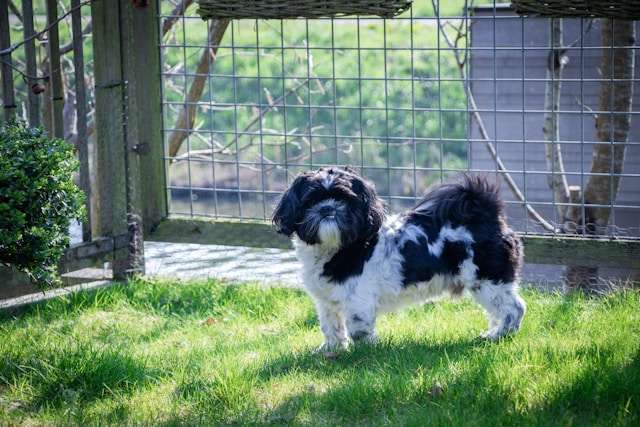
Photo by Blue Bird
Positive reinforcement isn’t just practical—it’s enjoyable for you and your Shih Tzu. Treats and play help transform training into a rewarding experience, setting the stage for long-term success.
Troubleshooting Training Issues
House training for Shih Tzu can come with hurdles, even with the best plans. Sometimes accidents happen, or progress slows unexpectedly. Troubleshooting these situations calmly and effectively will keep stress at bay and help you stay on track.
Dealing with Accidents: Offer advice on how to handle accidents without punishment
Accidents are inevitable during house training, and how you respond can significantly impact your dog’s learning. Remember, your Shih Tzu isn’t being “bad”; they’re simply learning.
- Avoid Punishment: Refrain from yelling or scolding. Punishment can create fear or confusion, making the training process harder. Instead, clean up calmly and reinforce positive behavior when they go to the right spot.
- Redirect Immediately: If you catch your Shih Tzu in the act, gently interrupt with a firm but friendly “Oops!” and guide them to the designated potty spot.
- Use the Right Cleaning Products: Residual scents can encourage repeat accidents. Enzymatic cleaners effectively eliminate odors and prevent marking.
Accidents aren’t about discipline; they’re an opportunity to reinforce the correct behavior. Read How to Handle Your Dog’s Accidents in the House for more safety tips.

Photo by Pavel Danilyuk
Adjusting the Training Plan: Suggest modifications for the training approach if progress stalls.
If your Shih Tzu’s progress plateaus, it might be a sign to tweak your approach. Training isn’t one-size-fits-all; adjustments help meet your dog’s unique needs.
- Reassess Routine: Are potty breaks frequent enough? Consider adjusting timing, especially after meals or naps.
- Increase Training Rewards: Upgrade to higher-value treats, such as small pieces of cheese or chicken, to reignite interest and motivation.
- Shorten Sessions: If your Shih Tzu seems distracted, try shorter, more focused training sessions to maintain their attention.
- Evaluate Potential Barriers: Changes in environment or stress levels can disrupt progress. Ensure your Shih Tzu’s routine and surroundings are as consistent and calm as possible.
Setbacks are normal, but your dog will get back on track with some patience and a few tweaks. For more advice, check out Regression in Dog Training: Overcoming Setbacks.
Addressing these challenges with patience and understanding will make the journey smoother for you and your Shih Tzu. Keep building on successes and stay adaptable when issues arise.
Maintaining Long-Term Success
Training a Shih Tzu doesn’t end when the initial skills are learned. True success lies in sustaining those good habits over time. You can help your Shih Tzu thrive in the long run by staying consistent and continually reinforcing what’s taught.
Regular Schedule Adjustments

Photo by Aisha
Your Shih Tzu’s needs change as they grow, and their training schedule should adapt accordingly. Puppies, for instance, require frequent breaks due to their smaller bladders. As they mature, the frequency of potty breaks may decrease, but consistency in timing remains essential.
- Monitor Progress: Observe how often accidents happen indoors. Adjust schedules to address gaps.
- Gradual Changes: If your dog has mastered a three-hour potty schedule, stretch it to four, but stay observant of any setbacks.
- Account for Health and Age: Older Shih Tzus may need more visits outside again, while younger ones require extra playtime and stimulation.
Adjusting their routine ensures their needs align with your expectations. For more tips on long-term scheduling, visit Essential Skills for Long-Term Training Success.
Continued Reinforcement
Positive reinforcement doesn’t stop once your Shih Tzu grasps the rules. Dogs thrive when their successes are acknowledged consistently, even after complete training. Imagine it as a paycheck for a well-done job—everyone, even our furry companions, likes recognition.
- Frequent Praise: Catch your Shih Tzu doing the right thing and reward them, even if it’s a simple “good boy!”
- Occasional Treats: Reserve high-value treats for exceptional behavior to keep the motivation alive.
- Keep it Fun: Reinforce training through games, creating a positive and enjoyable atmosphere for both of you.
Don’t let good habits fade. Regular reinforcement helps solidify learned behaviors, making it easier to manage your dog in new situations. For more about consistent training strategies, check out The Lifelong Benefits of Dog Training Maintenance.
Conclusion
House training for Shih Tzu can be stress-free with the proper steps. Focus on consistency, patience, and positive reinforcement to build good habits. Notice your dog’s signals, stick to routines and reward success every time.
If setbacks occur, adjust your approach calmly. Avoid punishment and stay supportive to maintain trust with your Shih Tzu.
Training takes time, but the bond and long-term results are worth the effort. Stick with it, and your Shih Tzu will thrive.
FAQs: Stress-Free House Training for Your Shih Tzu
How long does it take to house-train a Shih Tzu?
Most Shih Tzus can be house-trained in 2-4 months with consistent routines. Some may take longer due to their stubborn nature. Patience and consistency are key.
What’s the best age for Shih Tzu to start house training?
Begin training when you bring your puppy home, typically at 8-12 weeks old. Early training helps establish habits faster.
How often should I take my Shih Tzu outside?
Take your Shih Tzu every 2-3 hours, especially after eating, drinking, or waking up. Puppies need frequent potty breaks.
Is crate training practical for Shih Tzus?
Yes, crate training can help. Dogs naturally avoid soiling their sleeping area. Ensure the crate is big enough for your dog to stand, turn, and lie down.
What are signs my Shih Tzu needs to go out?
Look for pacing, whining, sniffing the floor, or circling. These behaviors often mean it’s time for a potty break.
Should I use pee pads during training?
If you’re training indoors, pee pads can be helpful. However, they might confuse a dog learning to go outside. Decide based on your preference and home setup.
How do I handle accidents inside the house?
Clean accidents immediately with an enzyme cleaner to remove odors. Don’t yell—redirect your puppy to the correct spot next time.
What’s the best way to reward successful potty behavior?
Offer enthusiastic praise and treats immediately after your Shih Tzu does their business in the right spot. Timing is crucial.
Can an adult Shih Tzu be house-trained?
Yes, adults can be trained, too. Follow the same guidelines as puppies, but expect it to take longer if they develop bad habits.
Are Shih Tzus harder to house-train than other breeds?
Shih Tzus is known for being a little stubborn. Consistency, positive reinforcement, and patience play a significant role in success.
How do I avoid confusion in training?
Stick to clear commands like “go potty.” Always take them to the same spot and stick to a routine so they know what’s expected.
Should I use punishment when my Shih Tzu has an accident?
No. Punishment can make your dog fearful or stressed. Focus on positive reinforcement to guide their behavior.
How can I deal with nighttime potty needs?
Limit water before bedtime, and take your Shih Tzu out right before sleeping. Puppies may still need a potty break in the middle of the night.
Why is my Shih Tzu still having accidents after months of training?
Some dogs take longer due to age, medical issues, or inconsistent routines. If accidents persist, consult your vet to rule out health concerns.
Can I combine outdoor and indoor potty training for my Shih Tzu?
Yes, but be consistent about which surfaces and areas are acceptable. The transition from pee pads to outdoors gradually, if needed.


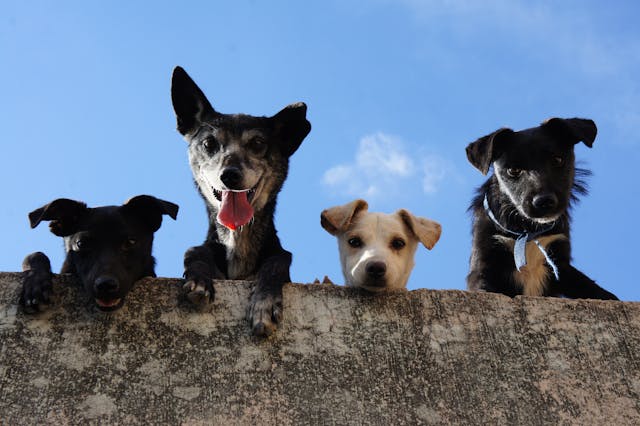

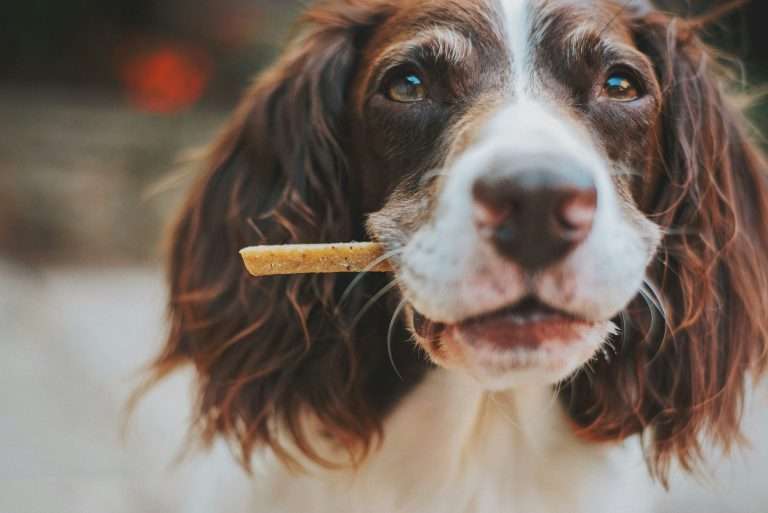
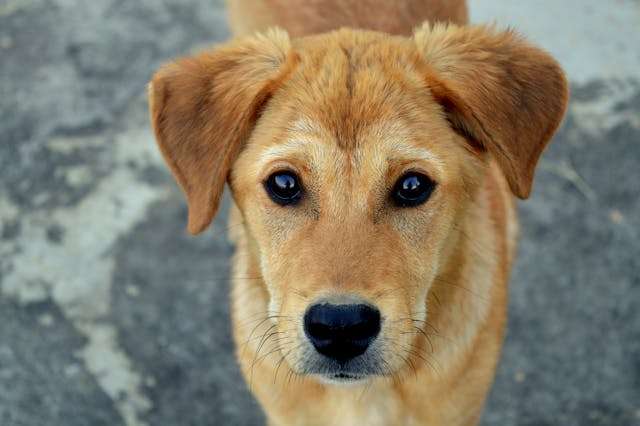
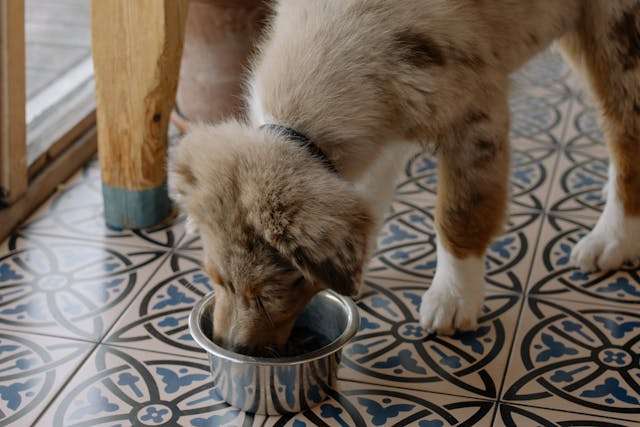
Thanks for sharing. I read many of your blog posts, cool, your blog is very good.